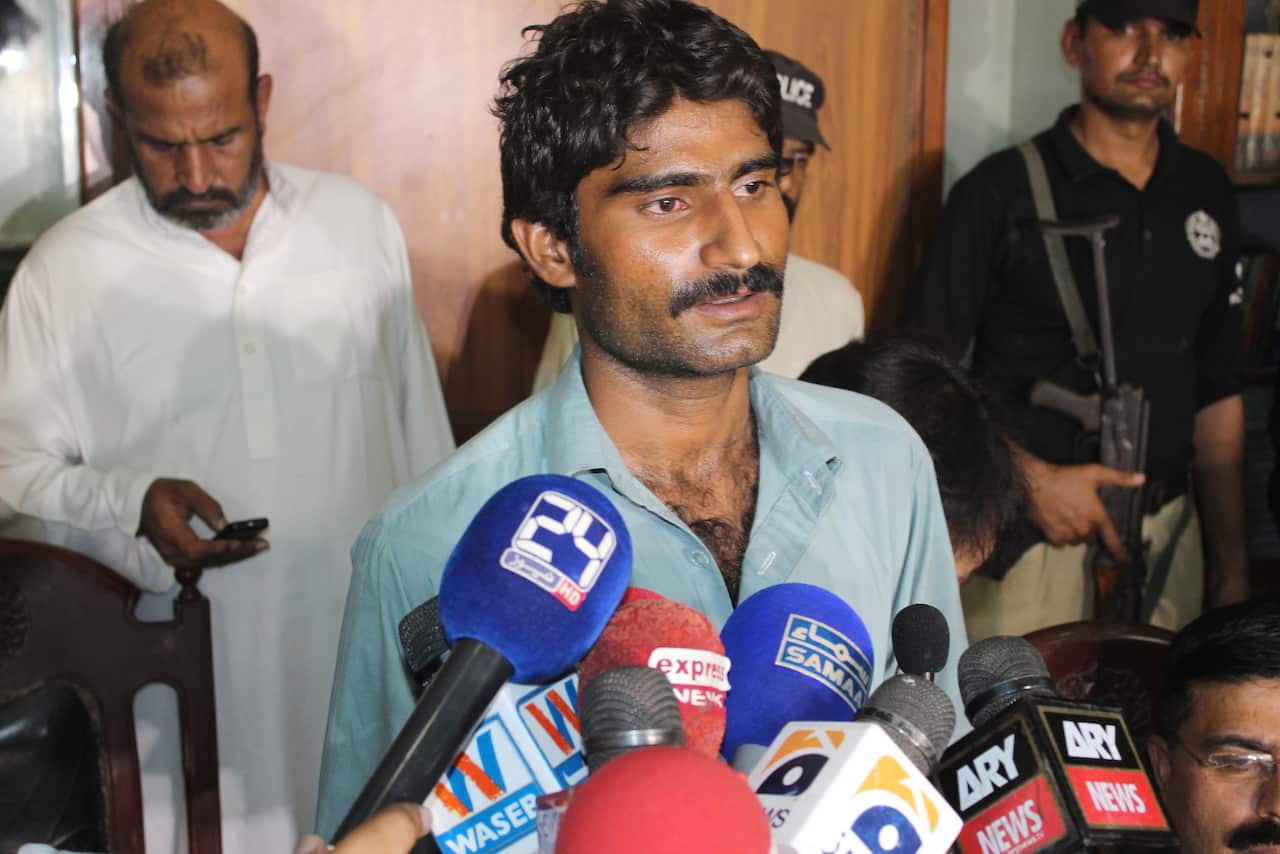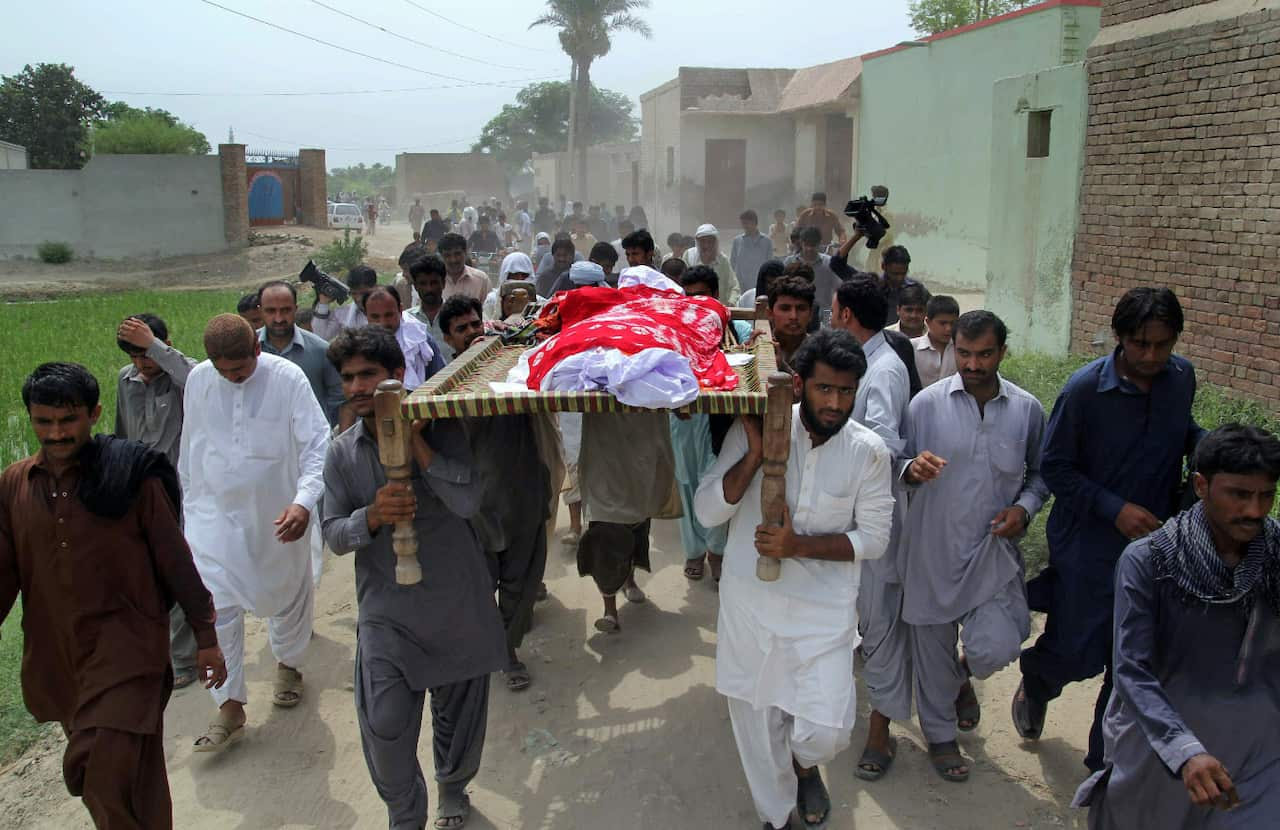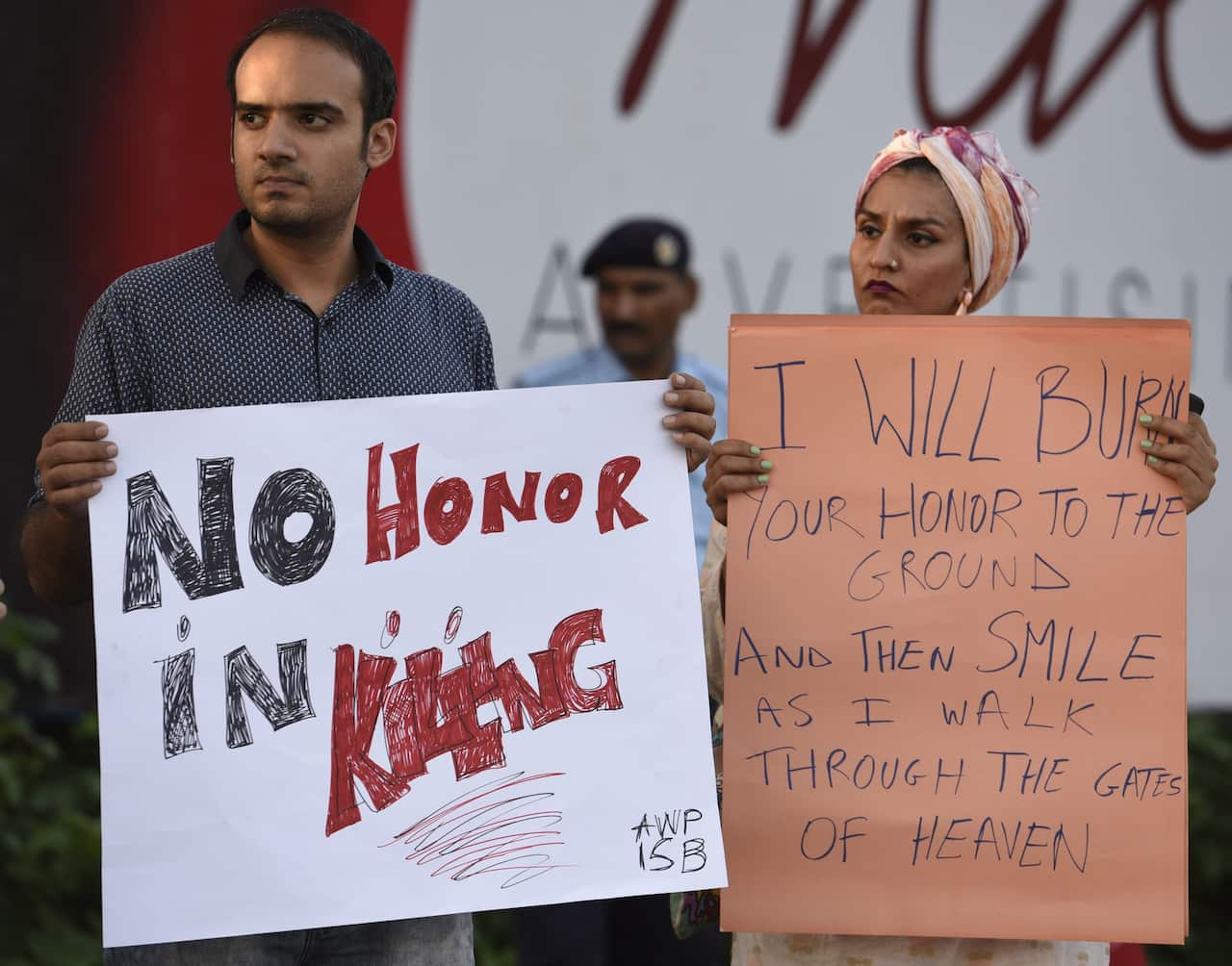Qandeel Baloch both captivated and outraged with risqué social media photos and videos.
Her brother confessed to killing her, claiming it was necessary to stop what he said was the disrepute she brought to her family.
The UN has called on Pakistani authorities to take more measures to educate people about honour killings.

Ms Baloch built a modelling career on the back of her social media fame and was the family breadwinner.
Media often described her as Pakistan's Kim Kardashian and she called herself a modern-day feminist.
Atika Rehman, features editor at Pakistani news website, Dawn.com, said Ms Baloch was in charge of her image.
“Her social media persona involved her dressing up, sometimes dressing down, making little selfie videos, showing people a little bit of skin [and] offering to strip,” she said.
"She was someone who was very much in charge of her body in a way that most Pakistani women wouldn't dare to do in the public realm. Because there's a certain way you're supposed to behave.
“Women are meant to be seen, not heard. So this was a woman who was seen, who was heard.”

Ms Rehman described the reaction to her death in Pakistan as “extreme”.
"Unfortunately, this is a country where a woman like Qandeel, who was very much in charge of her body and her sexuality and unabashedly so, had a lot of critics, had a lot of detractors," she said.
Ms Rehman said the 26-year-old endured death threats and vicious comments on her social media posts.
“There was a time that she had asked for security from the government, a plea which was unfortunately and tragically ignored," she said.
According to officials, more than 500 people, almost all of them women, die in honour killings in Pakistan every year.
In most cases, they are usually carried out by relatives acting on a perception that shame has been brought on the family.
Ms Rehman said Ms Baloch's death has brought the issue back into the national conversation.
“These killings are happening every day,” she said. “Qandeel is different because she got international exposure. One hopes that as unfortunate as these events are, they force the government to prioritising this so low when it happens so often," she said.
An anti-honour killings legislation that aims to close the family forgiveness loophole has been slowed down in Parliament.
Prime Minister Nawaz Sharif in February promised to speed up the passage of the proposed law.
But human right groups say there has been no progress.


